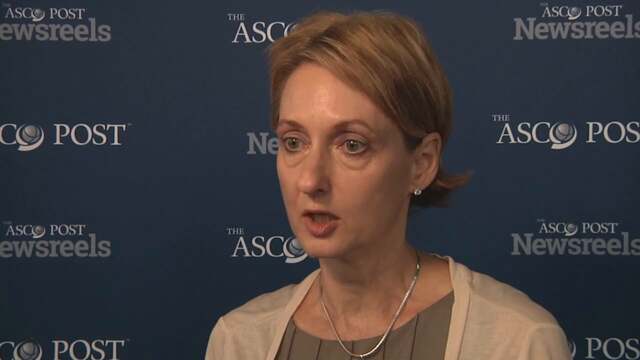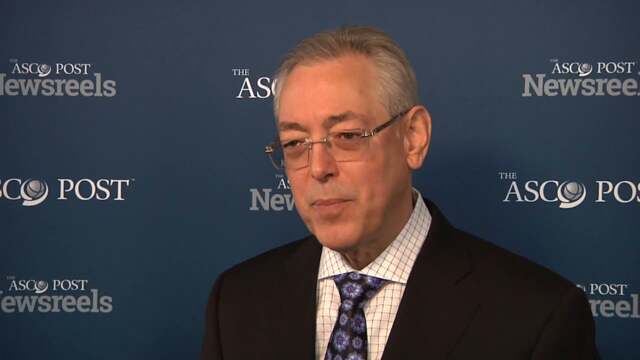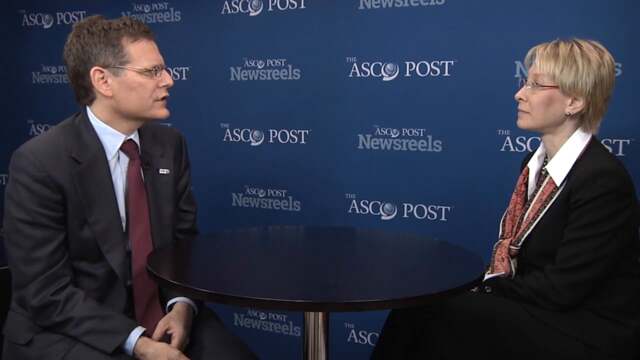Thomas W. LeBlanc, MD, and Eric Roeland, MD, FAAHPM, on Palliative Care for Patients With Hematologic Malignancies
2015 ASCO Annual Meeting
Thomas W. LeBlanc, MD, of Duke University Medical Center, and Eric Roeland, MD, FAAHPM, of the University of California, San Diego Moores Cancer Center, discuss the use of palliative and hospice care for patients with solid tumors vs hematologic cancers and clinicians’ attitudes (Abstracts e20554 and 9524).
Jedd Wolchok, MD, PhD, and Anthony J. Olszanski, RPh, MD
Anthony J. Olszanski, RPh, MD, of Fox Chase Cancer Center, and Jedd Wolchok, MD, PhD, of Memorial Sloan Kettering Cancer Center, discuss therapies for treatment-naive patients with advanced melanoma (Abstract LBA1).
Laurie H. Sehn, MD, MPH
Laurie Helen Sehn, MD, MPH, of the British Columbia Cancer Agency, discusses a first-ever finding on obinutuzumab and bendamustine in the setting of rituximab-refractory indolent non-Hodgkin lymphoma (Abstract LBA8502).
Jan C. Buckner, MD
Jan C. Buckner, MD, of the Mayo Clinic discusses adjuvant whole-brain radiotherapy and the need for initial treatment with radiosurgery and close monitoring to preserve cognitive function in patients with brain metastases (Abstract LBA4).
Areej El-Jawahri, MD, and Eric Roeland, MD, FAAHPM
Eric Roeland, MD, FAAHPM, of the University of California, San Diego Moores Cancer Center, and Areej El-Jawahri, MD, of Massachusetts General Hospital, discuss two important studies on early palliative care and the use of anamorelin in advanced NSCLC with cachexia.
Maura N. Dickler, MD and Clifford A. Hudis, MD
Clifford A. Hudis, MD, and Maura N. Dickler, MD, of Memorial Sloan Kettering Cancer Center, discuss adding bevacizumab to letrozole as a first-line endocrine therapy for treatment of hormone receptor–positive advanced breast cancer (Abstract 501).





